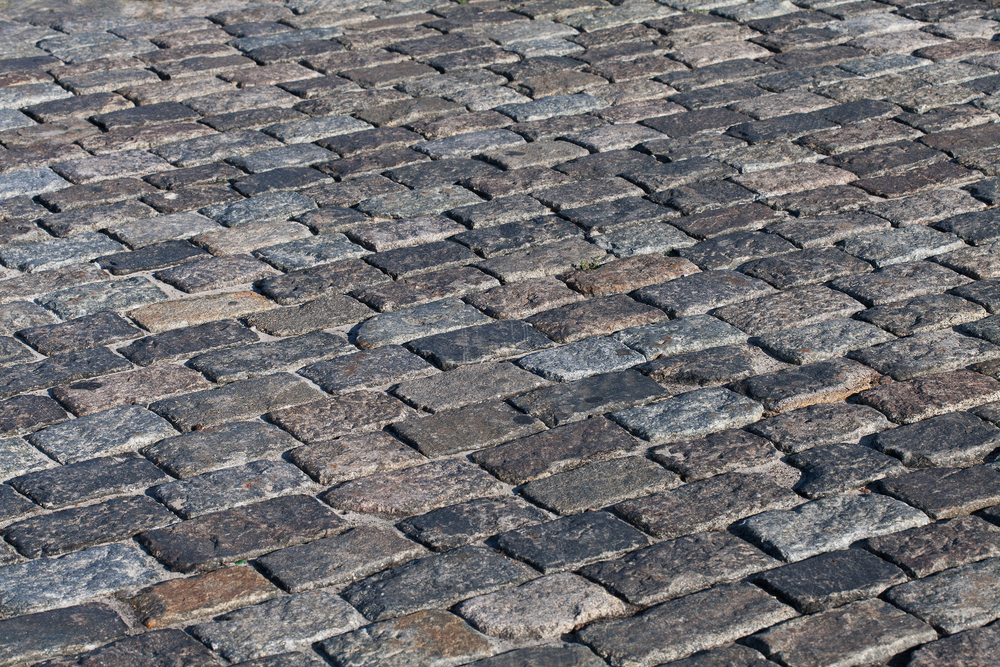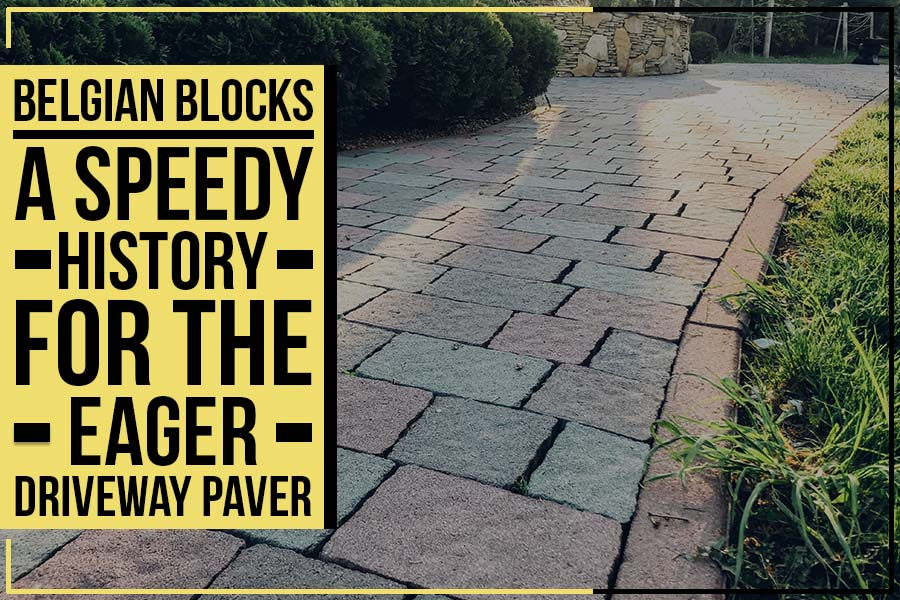Key Takeaways
- Belgian blocks originated from Belgium and are renowned for providing one of the most aesthetically pleasing driveway installations ever.
- The Romans first used Belgian blocks to prepare roads and sidewalks. The method became increasingly popular with the masses.
- The Belgian blocks have since passed on for generations and gained popularity due to their quick and efficient installation process.
- 5 x 5 x 9 is the standard size. While 4 x 7 x 10 is the jumbo size.
- Purcell’s Paving and Masonry is the right choice if you’re considering using Belgian blocks for driveway installation.
Are you looking to add some personality and pizzazz to your driveway? Consider using Belgian blocks! This old-fashioned paver has made a resurgence in recent years thanks to its combination of speed, durability, and style. In this blog post, we’ll look at the history of Belgian blocks and offer advice on how to use them effectively in your driveway. So read on and get inspired!
Brief History of the Genesis of Belgian Blocks
Belgian blocks—also called sett—have been used to pave roads and sidewalks for centuries. The Romans were the first to employ this method, but it quickly gained popularity due to the speed and efficiency with which horses could travel along paved roads. To this day, engineers continue to construct roads with these blocks.
This stone may have been significant in Belgian history, as suggested by its name. European sailors loaded these massive blocks into the ship’s hold as ballast before setting sail from Belgian port cities like Antwerp.
As merchants loaded their ships with goods, they abandoned the stones in major ports such as Boston and New York, where contractors later used them to pave roadways. There is little to no connection between modern Belgian blocks and Belgium, so the term “Belgian block” has become generic.
Today, Belgian blocks are commonly used for various landscaping purposes, including the construction of walls, borders, and curbs, the paving of streets, the capping of walls, and the construction of pillars. They are also famous for driveways, which can be used as a decorative or sole paving material. Even the most straightforward projects benefit from the eye-catching effect of these stones.
Size and Shape of a Belgian Block
There is no standard size for a Belgian block, and measurements are usually close approximations because each one is unique (to a degree), thanks to the fact that it was hand-cut. The tiniest dimension is about 4 by 4 by 4.
Standard and Jumbo are the two most extensive options.
5 x 5 x 9 is the standard size. While 4 x 7 x 10 is the jumbo size.
You can split these stones with a masonry saw to make them smaller or larger. There are helpful Belgian block calculators or charts available online that you can refer to determine the number of materials required.
The colors of these granite stones are diverse. Colors include pink, black, yellow, and even a gray-and-white mash-up. The blocks have been mistaken for cobblestones by some. Cobblestones, on the other hand, are river rocks that are round and have a dark grey color. Due to the quarrying process, the edges of the Belgian block tend to be rough.
Also, Read – Interlocking Paver Patios a Concise Guide to -Adding Style and Value to Your Home.
Landscaping Projects with Belgian Blocks
1. Belgian Block Edging: Belgian block edging is a great way to add a touch of class to any landscaping project. You can create a clean and polished look by using Belgian blocks to edge your yard’s flower beds, garden paths, or other areas.
2. Belgian Block Driveway: A Belgian block driveway can add curb appeal and value to your home. Considering installing a new driveway, consider using Belgian blocks instead of traditional concrete or asphalt.
3. Belgian Block Curb: The driveway’s shape is clearly defined using Belgian stones as curbing. There is no better, more cost-effective way to liven up a driveway. Simply put, it’s a fantastic method of corralling mulch and other landscaping materials.
4. Belgian Block Border: A Belgian block border is a great way to finish off any landscaping project. By using blocks to create a border around your flower beds, garden paths, or other areas of your yard, you can create a cohesive look that will tie your entire landscape together.

Benefits of Using Belgian Blocks
There are many benefits to using Belgian blocks for your paving projects. First of all, they are very durable. Belgian blocks are made of natural stone so that they can withstand a lot of wear and tear. They are also less likely to crack or chip than other paving materials, like concrete or asphalt.
Belgian blocks are low-maintenance, which is another perk. Once installed, you can do little to keep them looking good. Just sweep them off now and then, and you’re good to go! They also don’t require special sealants or treatments, like other paving materials.
Finally, Belgian blocks can add visual interest to your facility. Their unique shape and texture can help your place stand out. They are the way to go if you’re looking for a way to make a statement with your paving projects!
Why do You Need Professionals for Belgian Block Installation?
Paving and construction are two areas where you should never cut corners. This is especially true when it comes to installing Belgian block driveways. The paving process is detailed and precise; even the slightest deviation can result in an eyesore that lowers your property value.
Be aware of those YouTube videos that make Belgian block installation look like a breeze. The reality is that unless you have extensive experience in the paving and construction industry, you’re better off leaving this job to the professionals.
At best, a DIY Belgian block installation will look amateurish. At worst, it could damage your property and void your insurance policy. So, save yourself the headache and call a qualified paving contractor to handle this job.
If you’re looking to install a new driveway or need any other excavation and construction services in Short Hills, NJ, give Purcell’s Paving and Masonry a call. We’ll be happy to provide you with a free estimate for all your paving needs.
Posted in Purcell’s Paving And Masonry Blog | Comments Off

